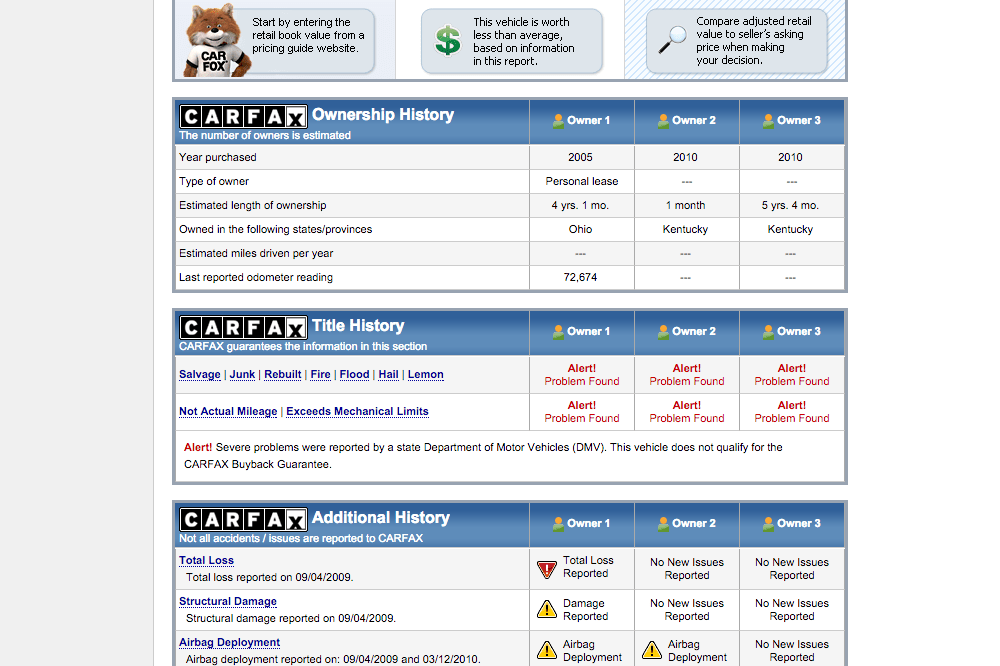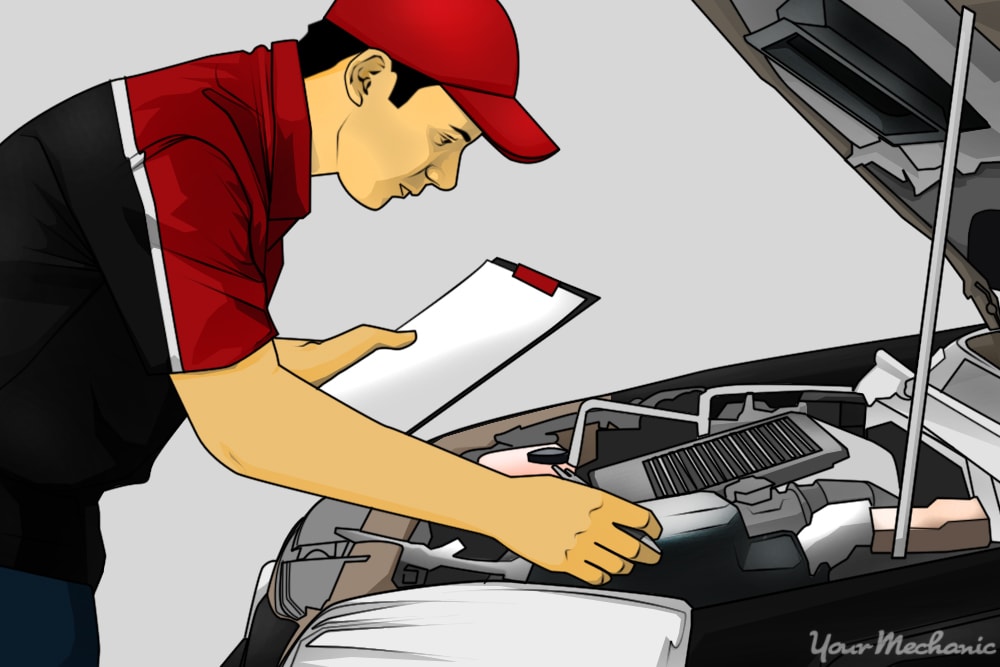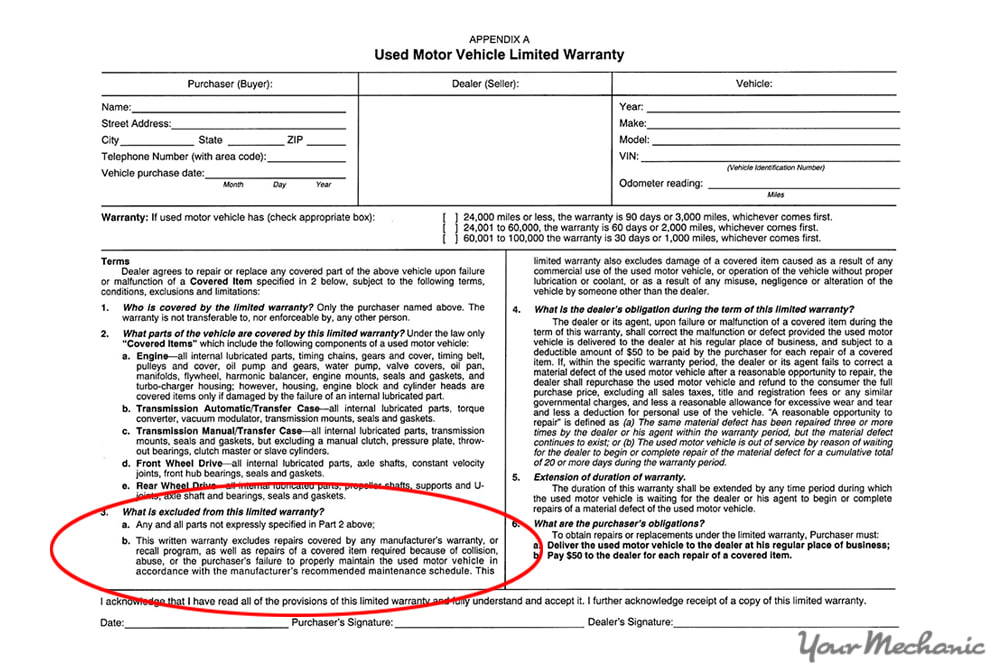

Car shopping can elicit a range of feelings and emotions – excitement, anxiousness, happiness, fear, and unfortunately, sometimes even sadness comes into the picture. Shopping for a used car can be especially stressful and time consuming, not to mention intimidating if you’re not completely familiar with the process. Buying from a dealership may alleviate some of this; however, it’s usually at a premium price. Here are some tips to help you navigate your next private party car purchase – and hopefully avoid all the stress and sadness.
Check the service history
A thorough, complete service history is one of the most valuable resources for information on a used vehicle. Ideally you want to see that the car was in for it’s normal scheduled maintenances, rather than just oil changes from the local quick lube. Following the recommended service schedule ensures not only that the vehicle got regular oil changes, but also that the other major items, such as fluids, filters, belts and plugs were changed per the manufacturer's recommendations.
Looking at the service history can also help to determine if any recommended work was declined by the previous owners. It’s understandable to hold off on having work done in order to obtain a second opinion or save for the cost, but completely neglecting the work for several months or longer could be a sign the vehicle may have had other problems that were ignored.
Vehicle history reports are your friend
Although most people have heard of at least one major company offering the service, there are actually several different companies that offer equally comprehensive vehicle history reports. These detailed reports include things that service records usually don’t, or that the owner may neglect to inform you of, such as accidents or failed emissions inspections. They often include info on any open recalls or campaigns which should be performed. They also tell you where the vehicle was purchased, which is helpful if you’re trying to avoid cars from a certain area due to rust concerns.
The price of these reports vary, so find one that’s in your budget, and run the report. Some companies offer car shoppers a package deal or an unlimited number of reports within a certain time period, which is helpful if you’re looking at multiple cars in your buying quest.
Have a pre-purchase inspection performed before buying
Once you’ve gotten past the service history and a vehicle history report, you’ll likely have a pretty good idea if you want to buy the car. Now it’s time to schedule a pre-purchase inspection. This is arguably the most important step, because this is when a qualified professional technician will look over the car with a fine tooth comb. They will drive the car and listen for any strange or suspicious noises or vibrations. The technician will lift the car to check underneath for any damage or leaks; closely check the suspension, steering and brake systems for wear and damage; visually inspect all the mechanical, electrical, and hydraulic systems; and scan the on-board control modules located all over the vehicle, of which there are sometimes dozens. Many technicians doing these inspections also have a good eye for noticing if body work was done, especially if it’s of less than stellar quality.
Although some buyers may be reluctant to let you take the car for a pre-purchase, or to take time from their busy lives to meet you somewhere, there is an alternative. YourMechanic offers qualified techs all over the country that will meet you where the car is, and perform the pre-purchase inspection on site. Neither the owner nor you need to be present while the inspection is performed, and you will receive a personalized, digital inspection form noting everything the tech found. Not only is it far more convenient, it’s also less expensive than going to a dealer or independent shop.
Be ready to negotiate the price
Now that you know this is the vehicle you want, play it cool and don’t act too excited. Casually see if there is any room for negotiation in the price. Sometimes there is no wiggle room at all, but more often than not you can get a little off the price. Even if only a little comes off the price, it’s better than a sharp stick in the eye– or full price for that matter.
You should’ve already set yourself a budget and gotten pre-approved for financing if needed before beginning the car search. Next, obtain a couple different blue book values from different sources, and get the suggested retail values for the exact model car you’re looking at to see how the asking price compares. After that, price shop similar models online for reference. Try to keep the details the same, in order to keep pricing comparable. Finally, be sure that when you make the offer, you have the time to complete the sale right then, even if you have to relocate to a bank to transfer funds or get a cashier’s check. Most sellers will be more inclined to take an offer if they can just get the money and be done with the transaction, because selling cars is a hassle too.
Consider purchasing an extended aftermarket warranty
Now that you’re closed the deal, it’s time to protect that newfound investment. If you were fortunate enough to score a low mileage vehicle that’s only a few years old, your vehicle would be a perfect candidate for an aftermarket extended warranty. These are sold by dealers or agents and are meant to extend the factory warranty, or provide coverage of a late model vehicle with an expired warranty.
Definitely do your research though, as some of these warranty companies can be very sketchy. Read reviews and opinions online, and select a good quality plan from a well rated and reviewed company. For each plan you consider, be sure to read the covered systems and exclusions; generally higher coverage level equates to more covered systems with fewer exclusions. Make sure that engine and transmission replacement are not excluded, as failure of either of these components in a modern luxury car can easily cost more than $10,000 to fix. Although the nicer plans can be expensive, they are great peace of mind and can really come in handy if you bought a car that’s notoriously expensive to repair, such as a European luxury car.
While it’s true there’s no perfect formula or advice to remove all the stress and worry of buying a used car, hopefully using the aforementioned tips will alleviate some of it. These tips are also secondary to the most important part of the car buying equation – you. If you have any doubts or bad feelings along the way, maybe you should listen to them, even if everything else checks out okay.








